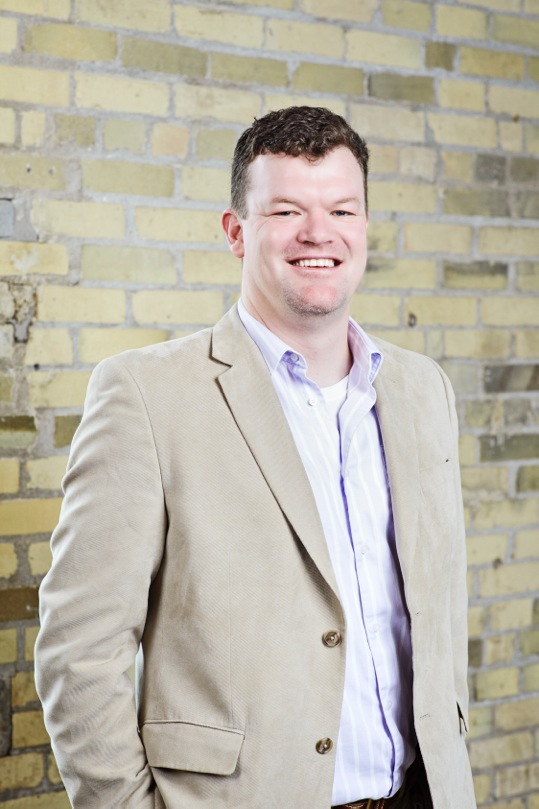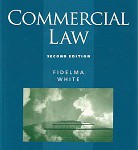Startup Snapshot: Cian O’Sullivan
This is the third in a series of profiles of the people behind active startups. if you are interested in sharing your experiences, or want to suggest a question to ad, ping me @mbay@stanford.edu.
Note: Cian O’Sullivan will be featured in “Round One” of Tuesday’s CodeX “Legal Disruption Lighting Rounds,” at ALM’s Legaltech West Coast at the Hyatt Regency [Embarcadero] in San Francisco, at 10:30 a.m.-11:30 a.m. For information, visit www.legaltechshow.com.

Cian O’Sullivan: Beagle Inc.
411: Cian O’Sullivan, 40, is “Top Dog and Founder” of Beagle Inc. He is also a Fractional/Interim Executive (Grow Factor Program) at Communitech. He spent four years at Desire2Learn as its principal negotiator. He is on the board of directors of TheMuseum.

Home base: Kitchener, On.
Education: McMaster University, Hamilton, Ontario (Bachelor of Kinesiology and Physical Education) and University College Cork (Cork, Ireland), Bachelor’s of Civil Law, Law.
Connection to CodeX: I have presented at CodeX a few times, and I am activiely involved with a CodeX workshop to inspire innovation in the legal industry leveraging technology.
Launch date: Beagle Inc. will have general availability Nov. 1, 2015. This is my first start-up that has traction. (I have dabbled in a few other ideas.)
How do we reach Beagle? Website: www.beagle.ai Twitter: @BeagleInc Facebook: facebook.com/beagleinc
Do you have funding yet? We have raised just under $500,000, on convertible notes through two stages. Our first investor is a company in Waterloo, Ontario, who asked me to review a 90-page contract over a weekend. I wrote the first version of Beagle over the weekend. The company liked the concept so much that they invested.
As we started to gain traction, we were accepted into the Microsoft Ventures Accelerator Program in Seattle. Six hundred applicants, 14 got in. Because we got accepted, it was easier to raise more money to help fund us to go to Seattle. Garage Fund is a seed for startups, and is based Kitchener-Waterloo Ontario. They have a partnership with iNovia Capital. Anything Garage puts money into, iNovia will usually throw a few dollars in as well. Both Garage and iNovia invested. And to round it out, our most recent investor is a very well known Canadian business guru, Dennis Kavelman, the former CFO of Research in Motion (now BlackBerry).
What problem does Beagle solve? The problem is very simple: contracts suck. Getting the information you need in a quick, inexpensive manner is impossible. Trying to get people to collaborate, such as adding comments, is a pain. The technologies that are available for word processing and management are difficult and time consuming. There is a huge transactional cost associated with changes. Workflow tools that are supposed to help just add more steps.
We help users by enabling lawyers and other users to quickly dive into the details of a contract and leverage simple-to-use collaboration tools to get feedback from—or engage with—stakeholders.
Beagle uses artificial intelligence to “read” a contract and provide highlights and tags to the clauses that should be reviewed (examples: termination rights, responsibilities, liabilities). It displays the information in a clear, easy to see format, with feature-rich real-time collaboration tools. The best thing about Beagle: the more you use it, the smarter it gets. It uses machine learning to build an understanding of what you want.
As we look at legal services, and how they are delivered, there is a huge shift away from the traditional retainer model. Flat fee services and micro transactions are all part of a new delivery model. However, for service providers to be cost effective, they need tools that enable and empower their clients, and also provide transactional efficiencies. It is hard to justify a $500/hour fee when your word processor crashed, or you modified the wrong version of an agreement.
How does it work? Beagle uses two forms of AI, natural language processing and Machine Learning. We take a lexical and semantical approach to tokenizing and reading the agreement. We first have to figure out who the agreement is between. From there we look at each sentence to see if it matches fuzzy logic patterns, as well as mathematical patterns for various items like responsibilities. We then tag those clauses. Everything is python based on the backend, and javascript react on the front end.
As you use the system, like/dislike, tags, comments we track that behavior and start to preemptively suggest tags or like/dislikes for you. So if you keep adding a tag named “Finance” to any clause that has the word “fees” in it, after 8 tags we have enough of a cluster to start to recommend tags. As you verify those tags are accurate or not, our system learns. This helps us to provide a personalized analysis. This is done by creating clusters of data, but matching and non-matching and then running some complicated algorithms to create a matching “net” which catches or does not catch a clause. We used the system to train jurisdiction clauses, and we have a 95 percent accuracy now.
What is the BeagleBot? It’s a personal assistant. You can ask BeagleBot a question and it will give you the answer. You could say something like “I don’t know what the hell indemnity is. What is that crap?” It would know that this is a question, and the subject is indemnity. It then reaches out to Wikipedia to get the answer. Users can ask BeagleBot questions like, “What termination for convenience clauses do we normally use.” It will be an assistant to your company, history, habits and precedents.
What does it cost? Beagle is in beta now: $83/month on a one-year term. If you don’t like it after a year we will give your money back or a second year free. The price is guaranteed for as long as you are a customer. When we go live (scheduled for Nov. 1), we expect to charge about $125/month.
Your biggest challenge: Assumption validation. Everything we do from a product side—design, feature, messaging—is based on our assumptions on how the marketplace/users will respond or like things. Sorting and applying feedback is very difficult. We have to focus, but at the same time we cannot ignore the obvious. This is a precarious balance and very easy to get wrong.
What do you need right now? In six months? In a year? Right now we need users to give us feedback. In six months we need the product working solidly and the sales process to be automated. We will be raising money in the first quarter of 2016. In a year, we want 2,000 users.
What is next? We are grinding away at improving the accuracy and performance of the product, including all the features, bells and whistles. We continue to work on it and drive our messaging. We are out singing and talking about it, because the product is good enough for people to “call our bluff” and try it.
What have you learned that you wish you had know 5 years ago? I wish I knew the concept of assumption validation better. When you understand that an assumption needs validating, and can approach that validation in an enabling way, you can get powerful results. It shows leadership, and really helps facilitate the best outcome.
Who influenced you more than anyone else: My Dad, Dr. Peter O’Sullivan. He taught me to look at things from first principals, and try to understand, not just accept.
Your most important mentors: Alec Saunders, principal technology evangelist at Microsoft Corp., and Mukund Mohan, director at Microsoft Ventures. These two mentors took the time to learn about me, and my style, and gave me great feedback and direction based on my objectives. They are very direct, and I value their input immensely.

What book changed your life? “Commercial Law,” by Fidelma White. Gave me a love for business. I knew I wanted to be a business person with legal knowledge.
What advice do you have for other entrepreneurs? Accept the fact that on any given day there are 10,000 balls in the air, and you are going to drop most of them. Pick your battles and make sure everything you do is milestone based. Without milestones, the company won’t survive and neither would investors.
Where do you want to be in 5 years? 10 years? Next week? Thinking 5 years or 10 years out is not even on my radar. My biggest radar stage is raising money in Q1 of 2016.
Favorite vacation destination: Anywhere I have never been.
Favorite music group: Boston.
Favorite quote: “Live every day like it’s your last, some day you’ll most certainly be right,” cited by Steve Jobs.
MY mantra: Milestones.
Who would you want to be sitting next to you if you got stuck for 3 hours on the NYC 4 train or on the tarmac in a 737 (not counting family members)? David Suzuki, famed Canadian environmenatlist.
Compiled by Monica Bay, a Fellow at CodeX and a member of the California bar. She retired in February from ALM, where she was editor-in-chief of Law Technology News. Twitter: @MonicaBay Email: mbay@stanford.edu.
